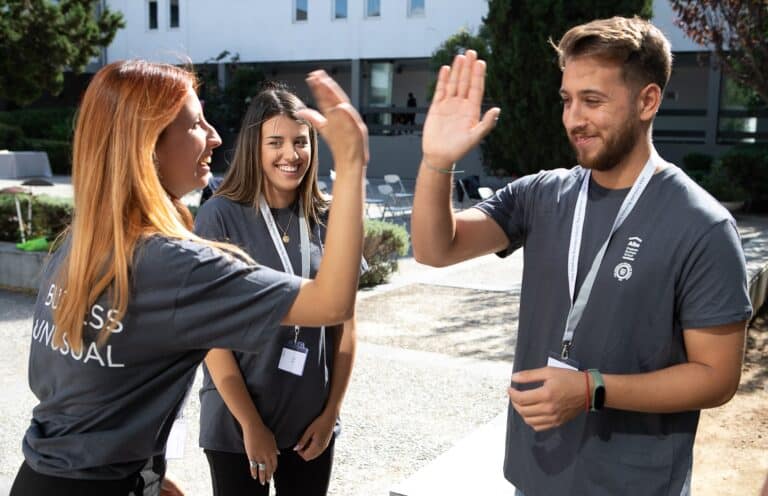Applying to university can be difficult, even more so if you’re applying to an international university. The enrolment process for international universities can be different, with additional requirements and more paperwork.
Consequently, there are some commonly-made mistakes when students apply to international universities. But if you want to increase your chances of being accepted to your first-choice university, you need to get it right.
From the application itself to deadlines, read on to find out the mistakes students most commonly make during the enrolment process for international universities, so you can avoid them.
Besides the common mistakes below, make sure you never forget to read verified student reviews.
Common Mistakes Students Make In Enrolment Process for International Universities
1. Not checking application deadlines

Application deadlines vary from country to country, but generally, international students should apply much earlier than home students. This is to factor in the time needed to apply for a student visa if you need one.
Across Europe, application deadlines for starting dates in the autumn semester (usually September or October) stretch from February to July. Make sure to check the exact dates for the country and university you’re applying to well in advance, or you might find you’re too late to apply to your chosen institution.
As the enrolment process for international universities can take longer, we recommend starting the research process at least 12 months before you’re due to start your programme. This should leave you enough time to submit your application before the deadline.
2. Applying for the wrong visa
Some countries have a range of student visas, and sometimes students can delay their application by applying for the wrong one.
For example, in the UK, there are two student visas:
- Short-term study visa: A visa for courses lasting between 6 and 11 months, usually for students coming to study a language programme.
- Student visa: A visa for all higher education courses in the UK.
In some countries, such as Canada, a study permit is needed in addition to a visa to enter the country and study. Make sure you do plenty of research into the visa you need before applying for your program. Leaving enough time to gather the right documents will ensure that you don’t miss the start of your programme.
3. Not checking work allowances for international students

Are you a non-EU student looking to study in Europe? Then you may not have the same right to work as other students while you study abroad. This can cause a problem if you already assumed that you would support yourself financially by working at university.
These are the caps on weekly working hours for non-EU students on a normal student visa in popular European destinations:
- Germany: 20 hours
- The Netherlands: 16 hours
- France: 21 hours
These caps may also apply to international students in non-EU countries like Canada and the United States.
To avoid any confusion – and to prevent you from getting in trouble with the immigration services – check how many hours you’re legally allowed to work before getting a part-time position.
4. Not applying for all the bursaries available
Being an international student is expensive. One of the most common mistakes many international students make, though, is not checking for a wide variety of scholarship and bursary opportunities.
It’s not just universities that offer financial aid to students. There are plenty of organisations that may help you fund your programme, so it’s worth checking a larger database of scholarships and bursaries rather than just your university website.
5. MIssing Certain parts of the international application process

One common misconception for international students is that the enrolment process for international universities is the same as if you were applying at home. Unfortunately, this isn’t the case.
Firstly, when you apply to an international university, you will inevitably have to supply more information to your chosen institution. This could include an English language certificate (if English is your second language) and additional professional references.
If your chosen university programme is in English, but your university documents aren’t in English, you may also have to pay to have these officially translated.
Finally, you might also have to schedule an appointment at an embassy in order to receive your student visa.
As long as you’re aware of the additional steps, then the enrolment process for international universities should go smoothly.
6. Applying to too many universities
Finally, many students believe that applying to more international universities is better. This will increase your chances of acceptance, right?
However, applying to too many universities can also have its problems. As we’ve discussed, the enrolment process for international universities can be daunting and requires focus and hard work. Not only may different universities require different formats of documents, but you’ll also have to tailor your personal statement and recommendation letters to each institution.
When it comes to applying internationally, focusing on just a few applications can be more successful than trying to do as many as possible.
Conclusion
The enrolment process for international universities is a little different to if you were applying for universities at home. As such, it’s good to be prepared. But as long as you’re aware of the complexities of the process and are prepared for things like deadlines, visas, and financing, you should complete the process successfully.
For more information about the enrolment process for universities, check out our article on five things you need to remember if you’re applying to business schools.
Recent Posts

If you're thinking of studying a technical subject like engineering at university, it's crucial that you choose a university that has a rigorous ...

Although it's possible to sail through university without giving a thought to what you're going to do afterwards - concentrating only on enjoying ...

Ever thought about studying in Greece? Between the sunny weather, incredible history, and breathtaking coastline, you could also get a top business ...

